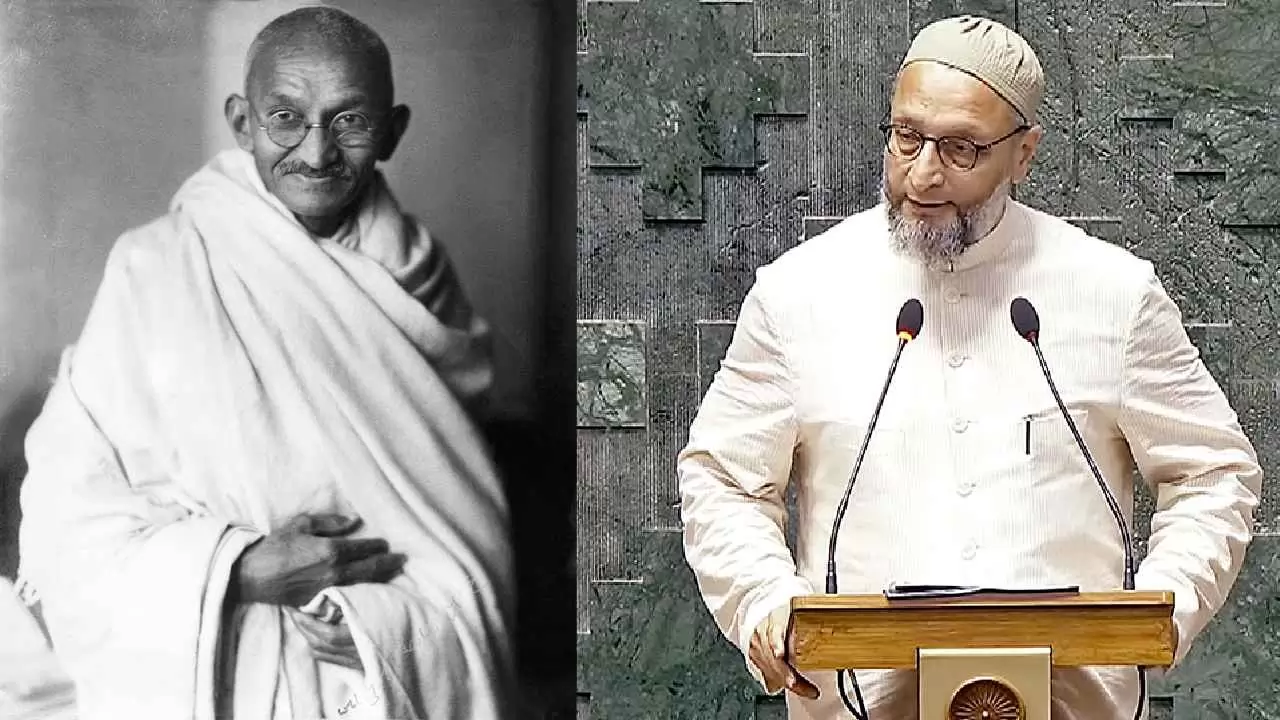
Wikipedia, ANI
New Delhi: During the second day of the 18th Lok Sabha proceedings, Protem Speaker Mehtab Bhartrihari administered the oath to new MPs. AIMIM chief Asaduddin Owaisi, after taking his oath, raised the slogan of "Jai Palestine," which led to a ruckus in Parliament. BJP MPs demanded the removal of his statement from the records.
Parliamentary Affairs Minister Kiren Rijiju criticized Owaisi's statement, asserting that such remarks should not be made in Parliament. This incident brings to light Mahatma Gandhi's stance on the Israel-Palestine dispute. Meanwhile, Assaduddin Owaisi evoked Mahatma Gandhi's take on the conflict of Israel-Palestine to defend his 'Jai Palestine' after NDA leaders made ruckus over his remark.
Mahatma Gandhi had been aware of the Israel-Palestine conflict from its inception, deeply moved by the plight of Jews in Europe. In 1938, after visiting the border state, he wrote an editorial titled "Untouchables of Christianity," expressing his sympathy for the Jews, comparing their treatment by Christians to the treatment of untouchables by Hindus.
Gandhi believed that Palestine belonged to the Arabs, just as England belonged to the British and France to the French. He argued that forcing Jews onto Arab land was unjust. Gandhi questioned if Jews wanted to be forcibly removed from other parts of the world or desired two homes for their pleasure.
Gandhi suggested that Jews should live in Palestine only with Arab goodwill, advocating for non-violence and Satyagraha. He emphasized that Jews should strive to win Arab hearts rather than resist violently, believing that this approach would foster peace and understanding.
In 1946, Gandhi wrote another editorial, "Jews and Palestine," stating that the world had wronged the Jews, forcing them into ghettos in Europe. He believed that without this mistreatment, Jews would not have sought to return to Palestine. Gandhi criticized the imposition of Jewish settlements in Palestine with American and British support, calling it a grave mistake.
In 1947, Gandhi told Reuters reporter Doon Campbell that the Palestinian problem seemed insoluble. He advised Jews against adopting terrorism, urging them to seek friendship with Arabs and to rely on their heritage and legacy rather than external powers like America and Britain.
Despite the establishment of Israel on May 14, 1948, Gandhi's fears about the Israel-Palestine conflict persist. The ongoing violence and war have continued for decades, and Gandhi's call for peaceful resolution remains relevant. If global superpowers and leaders on both sides reach an agreement, the large-scale human destruction could end immediately.





Copyright © 2025 Top Indian News
